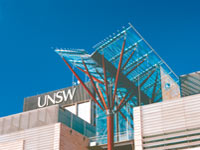|
|||||||||||||||||||||||||||||||||||||||||||||||
| Censorship and Free Speech - LAWS3042 | |||||||||||||||||||||||||||||||||||||||||||||||

Description This course is concerned with laws that impose significant legal restrictions upon what the media, or other communicators to large-scale audiences, may publish under Australian law. The course-matter is as relevant to the publication of books, films and videos as to newspapers and broadcast programs, and the legal problems presented by the new technologies receive special emphasis. The course begins with some consideration of the meaning or meanings of freedom of expression and the extent to which it is protected in general terms under Australian constitutional law. Special attention is paid also to broad political and philosophical theories about the notions of free speech and censorship. The focus then turns to specific laws having a significant daily impact on the contents of publications. Many of the topics have a long, if not necessarily distinguished, history in English and Australian law - this is particularly true, for instance, of defamation and contempt of court. But some of the restrictions being studied are of very recent origin: for example, it was only in 1989 that specific restrictions on publications inciting racial hatred were introduced into New South Wales.
LLM Specialisation Media, Communications and Information Technology Law.
Recommended Prior Knowledge None
Course Objectives Overall, the aim of the course is to acquaint you with:
Main Topics
Assessment
Course Texts Prescribed Recommended
Resources The Law School Materials and Cases will constitute the principal reading. They will be distributed in classes, together with one-page guides indicating the most important readings.
|
|||||||||||||||||||||||||||||||||||||||||||||||


